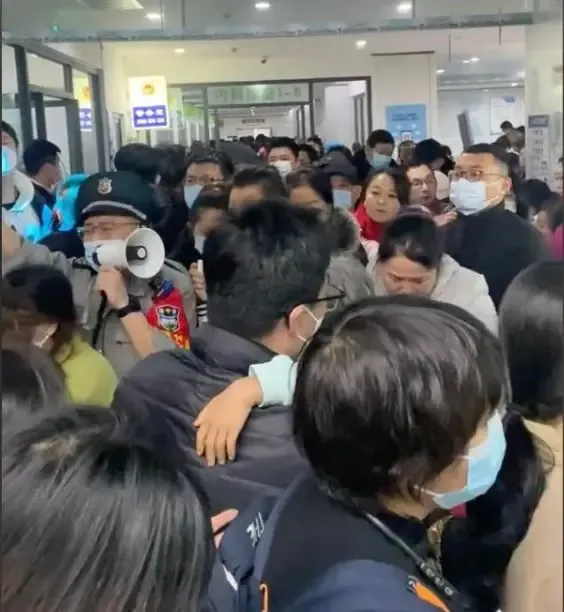HMPV Described as a Seasonal Phenomenon, Less Intense and Limited Spread in China

New Delhi, Jan 4 (NationPress) The Covid-like Human Metapneumovirus (HMPV), which is presently circulating in China, is simply a winter phenomenon, is less intense, and is spreading on a smaller scale, according to the spokesperson for the country's foreign ministry.
This declaration follows the emergence of images and videos on social media depicting hospitals in China overwhelmed with individuals amid the rising HMPV cases — causing respiratory illnesses — and triggering serious concerns of another pandemic similar to Covid-19.
During a press briefing, China's foreign ministry spokesperson, Mao Ning, characterized it as an annual event during winter and provided assurance that the nation is safe for travel.
"Respiratory infections typically peak in the winter months within the Northern Hemisphere. Recently, the National Disease Control and Prevention Administration of China conducted a press conference to disseminate information regarding the prevention and control of respiratory diseases during wintertime," remarked Ning.
"The diseases seem to be less severe and are spreading on a smaller scale compared to last year," she further noted.
In addition, reaffirming the safety of both citizens and tourists, she stated: "I can assure you that the Chinese government prioritizes the health of its citizens and foreigners visiting China," adding that "It is safe to travel in China."
In recent days, there has been a notable increase in respiratory ailments throughout China, evoking memories of a similar surge before the onset of Covid.
Media outlets in neighboring countries such as Indonesia, India, and Japan have also warned their citizens to stay informed about the situation in China and take necessary precautions.
Meanwhile, health officials in India have reassured the public that there is no cause for concern.
"The spread of HMPV in China resembles other respiratory viruses," stated Dr. Atul Goel, Directorate General of Health Services (DGHS), while addressing the media.
"There is no need for alarm regarding the current situation," he added.
The expert pointed out that the disease could result in "flu-like symptoms" in the elderly and very young children.
HMPV was first identified in 2001 and belongs to the Pneumoviridae family, which includes the Respiratory Syncytial Virus (RSV).
This virus can lead to both upper and lower respiratory diseases in individuals across all age groups. Young children, older adults, and those with compromised immune systems are particularly vulnerable.
As per the US Centers for Disease Control and Prevention (CDC), common symptoms associated with HMPV include cough, fever, nasal congestion, and shortness of breath.
The virus reportedly has an incubation period ranging from three to five days.
Preventative measures such as wearing masks, frequent hand washing, and boosting immunity can help mitigate the risk of infection.
In 2023, HMPV has been detected in various countries including the Netherlands, Britain, Finland, Australia, Canada, the US, and China.










